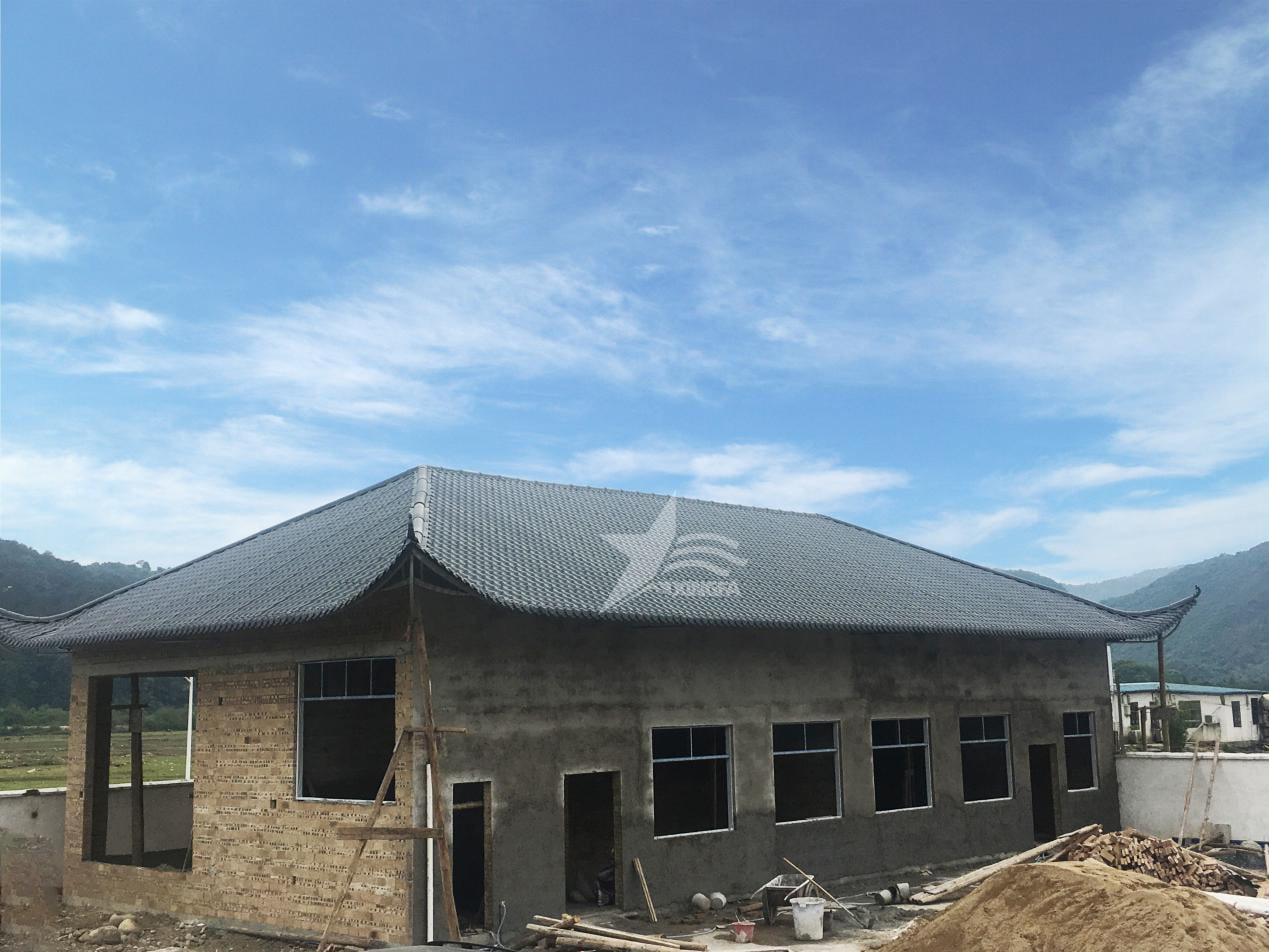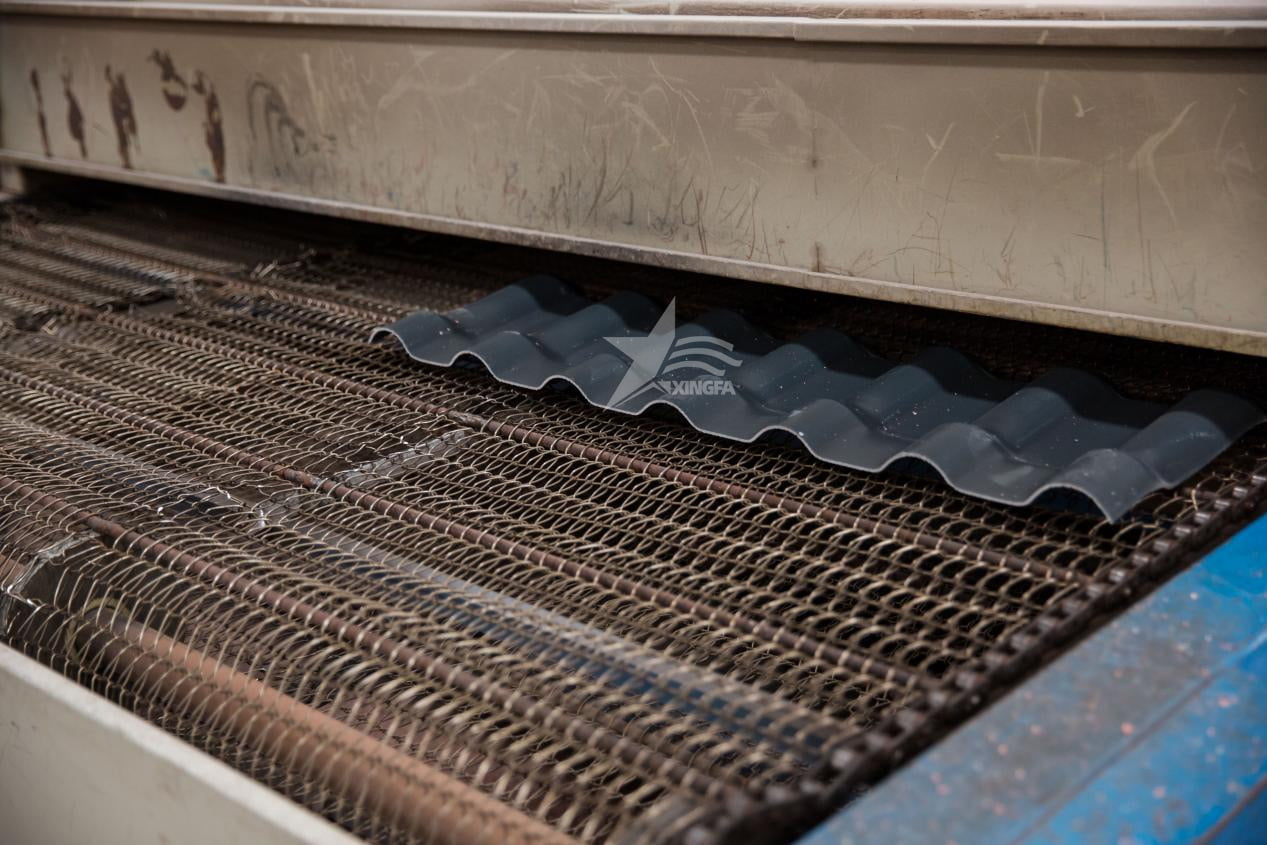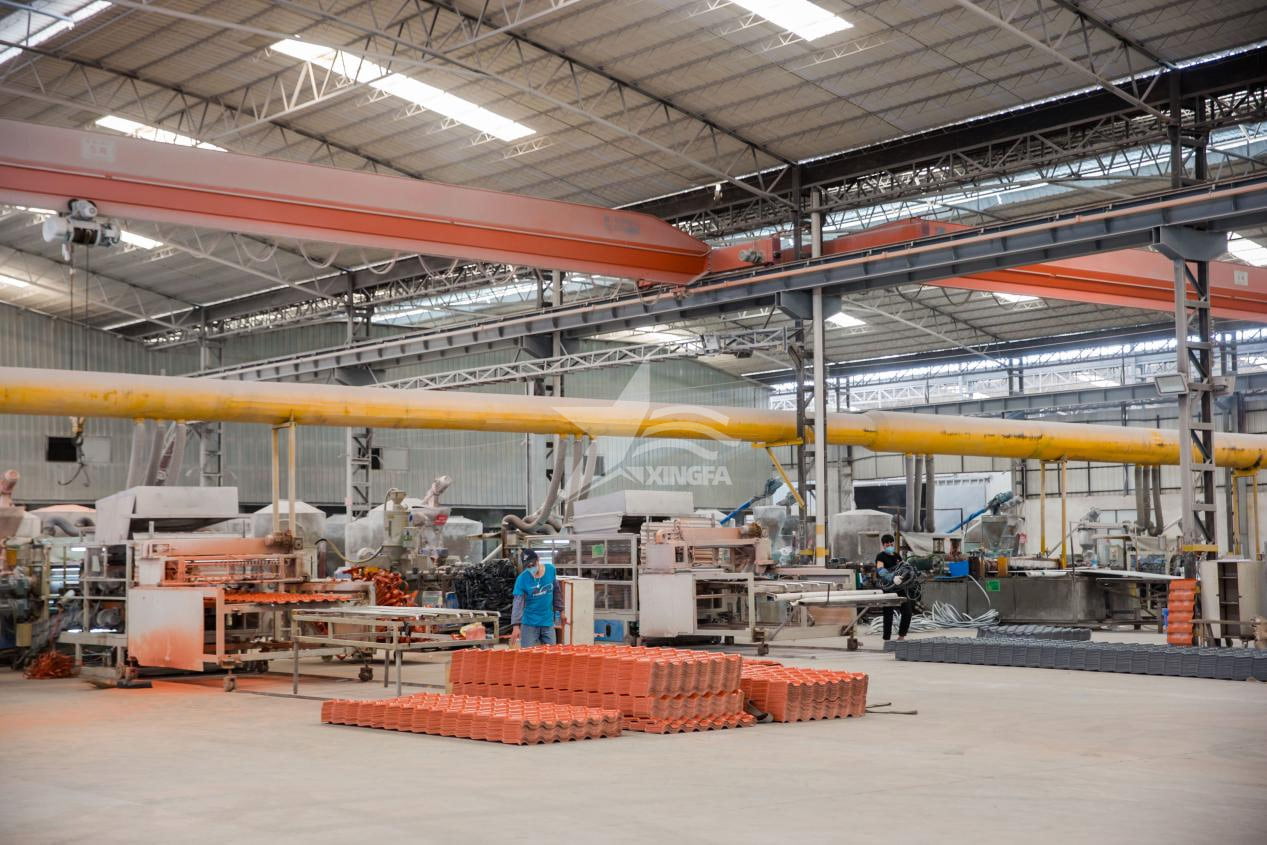When it comes to building houses in the tropics, the first thing I think of is that the foundation should be stable. In fact, the roof tiles are not to be ignored, as they represent the front of your home. With the development of the economy, there are more and more types of tiles for building, not only limited to cement tiles, but also beautiful red glazed tiles, resin tiles, metal tiles, green tiles, asphalt tiles, etc. Think of the small green tiles that were used most often in rural areas when building houses before. Later, people built houses with concrete flat roofs. Now they find that the flat roofs made of cement are prone to seepage after a long time, so they start to “flat to slope”.

In the process of assembling the roof, resin tiles should be used as much as possible. So how about resin tiles? What are its advantages and disadvantages? Next, let’s hear the analysis from insiders. I believe you will understand after reading it.
First of all, resin tiles are made of ASA high weather-resistant chemical plastics, calcium silicate powder and PVC mechanical high-temperature pressing. Light weight, less than 10% of traditional tiles, corrosion-resistant, waterproof, pressure-resistant, frost-resistant, moisture-proof, hail-proof, shock-proof, heat-insulating, durable, non-fading, and can maintain the beauty of the roof. If it is produced by the same regular manufacturer, the service life can exceed 30 years.
At the same time, the resin tiles are bright in color, with red, blue, gray, etc., and strong in selection. Moreover, the roof made of resin tiles will be very clean after being washed by rainwater, so the resin tiles look very clean.

However, is this resin tile suitable for building houses in areas with more rain? It depends on the situation. First of all, resin tiles are generally arc-shaped, suitable for slope. Using resin tiles on flat roofs is prone to water accumulation in the roof area, and if it continues to rain heavily, it may also cause water seepage in the house.
In addition, when the summer temperature in the tropics exceeds 35 degrees, the surface temperature can reach 40-50 degrees, which seriously affects the service life of resin tiles.
In addition, because the weight of resin tiles is light, it is not recommended to use them in areas with large wind volume. Because when we install tiles, if they are not fixed, or there is a strong wind, the tiles will be blown away. More importantly, the real raw materials of resin tiles are very expensive, and the common resin tiles in rural areas are basically made of waste materials, and farmers do not know how to distinguish them. Do you think the quality is reliable?
Industry insiders believe that it is best not to believe too much in the effect of commercial publicity. The really good resin tiles must also be sold at a high price.

Fake materials sound crisp and deep, while real resin tiles are bright in color and clear in lines. The sound of clapping is dull, and the tiles fall from the sky without any damage.
Generally speaking, not all houses are suitable for resin tiles. Therefore, between resin tiles and traditional tiles, if you do not know how to identify the quality of resin tiles, please consider carefully. Traditional tiles are also very beautiful and practical. If you want to choose one from the other, how do you want to choose?
What kind of tile do you use for your roof? You can learn about resin tiles.

